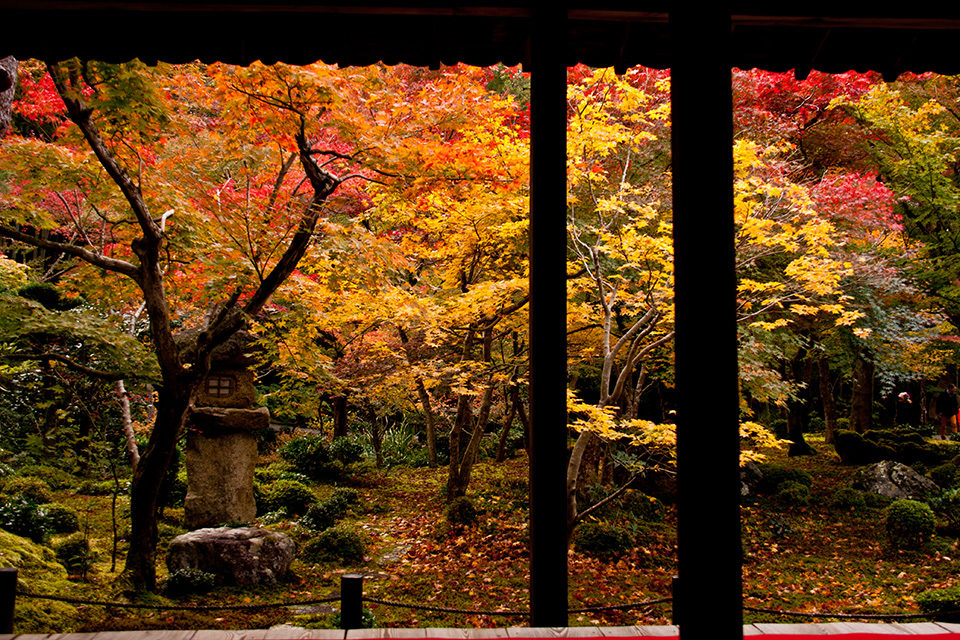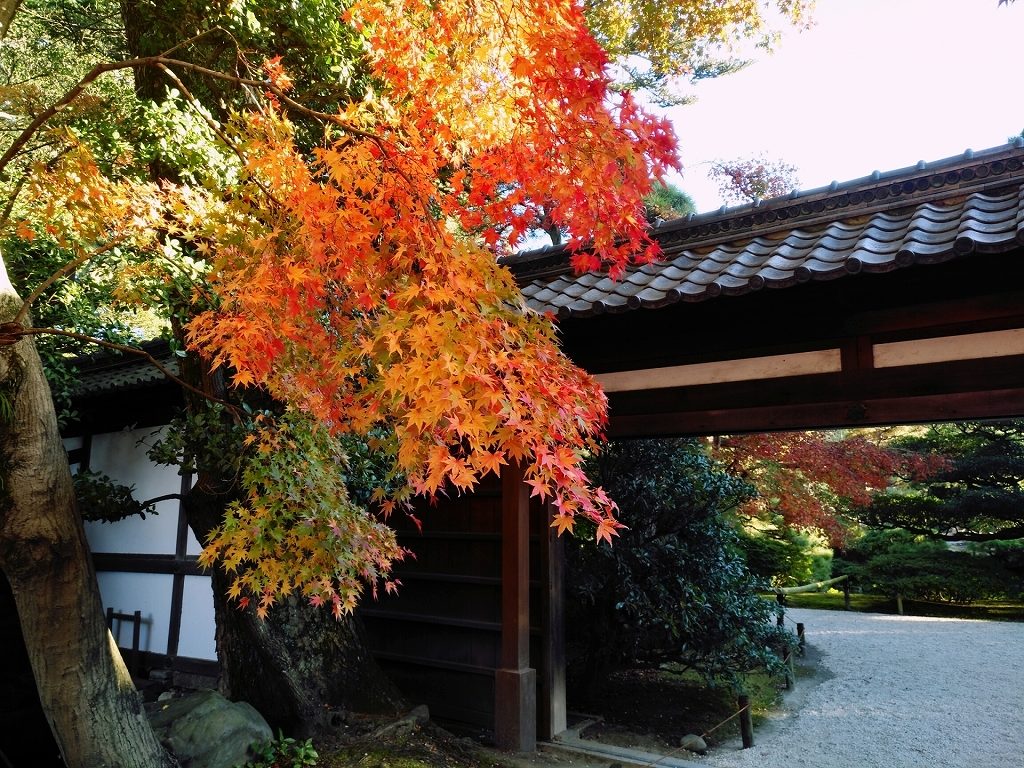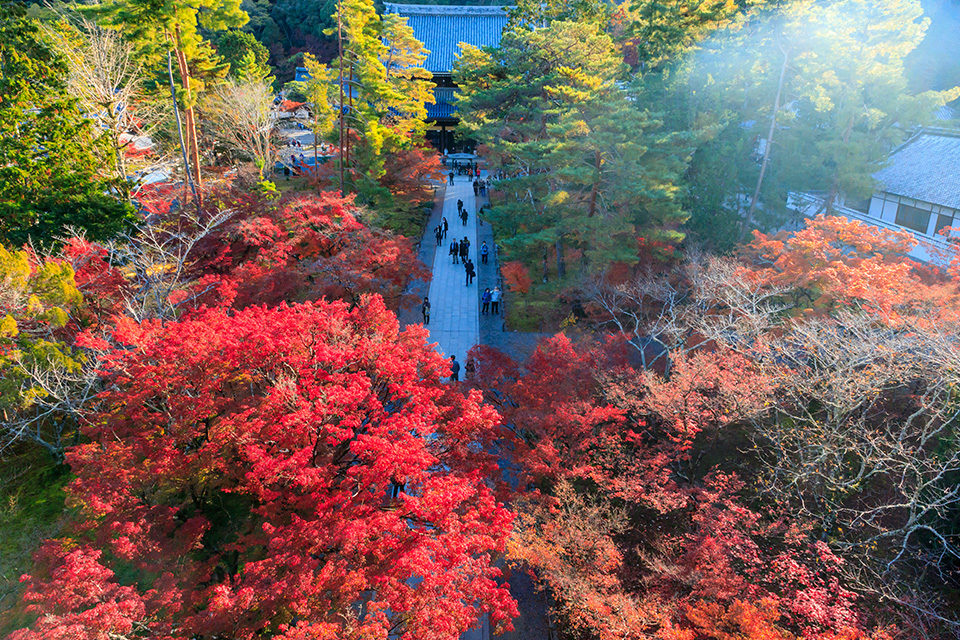
Subway Tozai Line is one of the routes of Kyoto Subway, with 17.5km. There are 17 stops from Uzumasa Tenjingawa Station to Rokujizo Station. You can also admire many tourist spots for red leaves. If you do not want to have the traffic jam problem during searching of fall foliage? Travel by this subway line will be a good choice!。
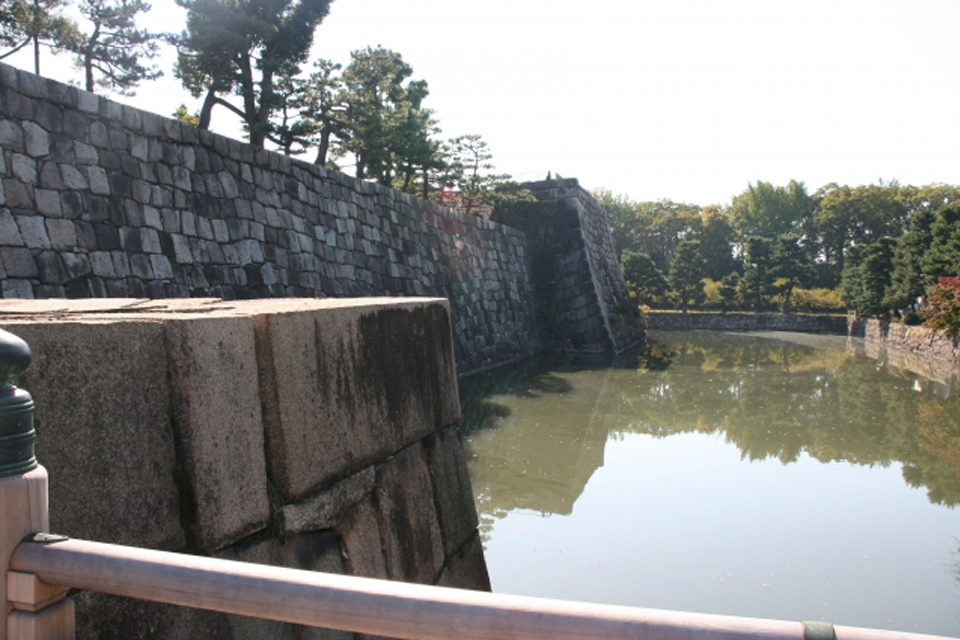
Nijo Castle
Nijo Castle Station is the nearest station. In the castle, there is a Ninomaru Garden created by the architect Kobori Masakazu, who was also a tea master in early Edo period. The building materials were removed from the house of rich businessman Suminokura Ryoi. There is also a Seiryu-en Garden created by Kinsaku Nakane. Seiryu-en Garden is not opened to public but able to be seen from the road to garden in the castle.Though it is a little earlier for red leaves, a Citizen Tea Gathering Event will be held from end of October to the early November. You can take a tea break at Seiryu-en Garden, where not always open to public. But the exact date for 2018 is not yet fixed. Please check the website of Nijo Castle for more information. Other than maples, a lot of sakura , ginkgo biloba and enkianthus perulatus are there. You can enjoy the colorful natural environment. Outside the stone wall there are also many red leaves. In the red leaves period in 2017, there is a event “Art Aquarium” in the city at night.Address:
541, Nijojo-cho, Nijo-dori Horikawa Nishi iru, Nakagyo-ku
- Get off at Nijo Castle Station by Subway Tozai Line
- Get off at Nijo Castle Bus Stop by City bus
- No1 car park (Nijo Castle east side): 120 cars
- No3 car park (Nijo Castle west side): 20 cars
Red maple leaves period:Early November to Early December
[hr][/hr]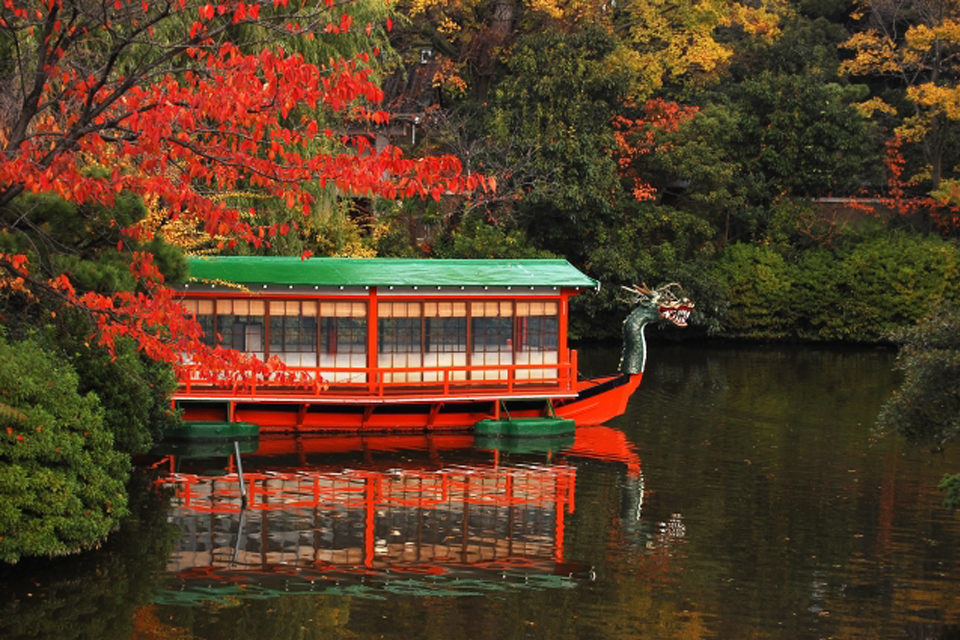
Shinsenen Temple
The closest station is at Nijo Castle Station. It is located at the south of Nijo Castle, the original place of Gion Festival. When Kyoto defined as the capital in age of Heian-kyo, Shinsenen Temple was built as a sub-garden for the Royal family.Houjouju pond being the center of the garden, the red Houjou Bridge and red leaves match with each other. The whole scenery can be taken into one photo. Though there are not many maple trees, also less tourists. So visitors can leisurely enjoy swim of duckAddress:
Monzencho, Oike-dori Shisenencho Higashi-iru, Nakagyo-ku
- Get off at Shijo-Omiya Station by Hankyu Railway, 10mins walk
- Get off at Nijo Station by JR Railway, 10mins walk
- Get off at Nijojo-mae Station by Subway Tozai Line, 2mins walk
- Get off at Shinsenen-mae Bus Stop by City Bus
- Get off at Horikawaoike Bus Stop by City Bus, 5mins walk
Red maple leaves period:Early November to Early December
[hr][/hr]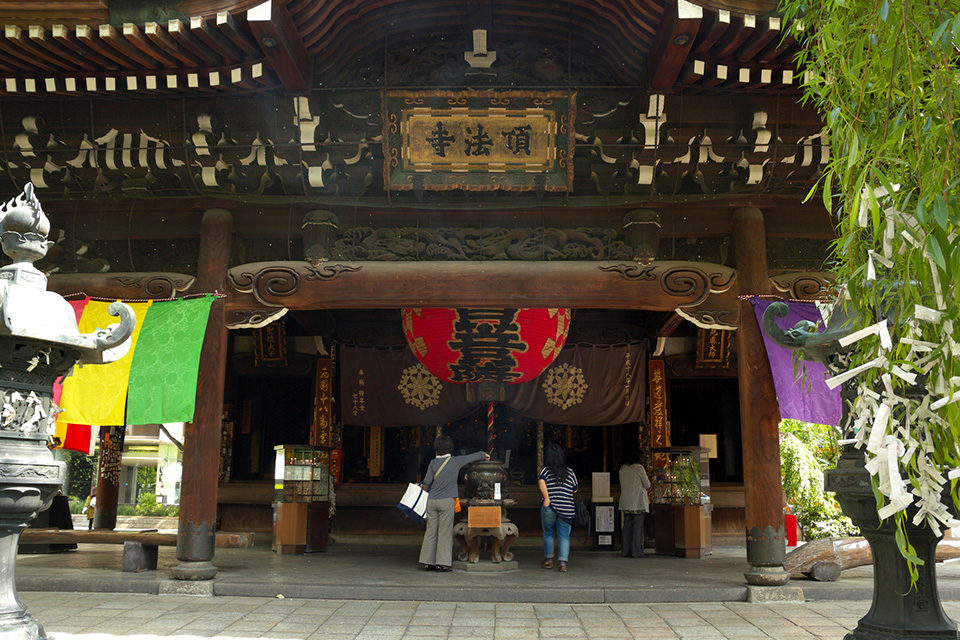
Rokkaku-do Temple
The closest station to here is Karasuma Oike Station. It was built by prince Shotoku in Asuka period. There is started the Ikebana (flower arrangement) of Japan and the place that the Japanese Buddhist monk Shinran closed for hundred days to study in Kamakura period. As there is the central part of Kyoto, people call here “The navel of Kyoto”.Though maple leaves not that many, they are still visible around Rokkaku-do Temple. The earth ware pigeon is the guardian here, can be souvenirs. The bath pond of prince Shotoku with swimming swans. Why not take a short happy hours at here for such pretty sceneries. Have a look of Rokkaku-do Temple through the windows of Starbuck. It is also a good place for having a rest.From 10th to 18th November, there will be a special event to celebrate the Saigoku Kannon Pilgrimage for 1,300 years. The inner part of Rokkaku-do Temple will be open to public to worship.Address:
Nakagyo Ward, Rokkaku Dori, Higashinotoin, Nishiiri-do mae
- Get off at Karasuma Oike Station by Subway Karasuma Line or Tozai Line, Exit 5, 3mins walk
- Get off at Karasuma Station by Hankyu Railway Hankyu Line, 5mins walk
Red maple leaves period:Early November to Early December
[hr][/hr]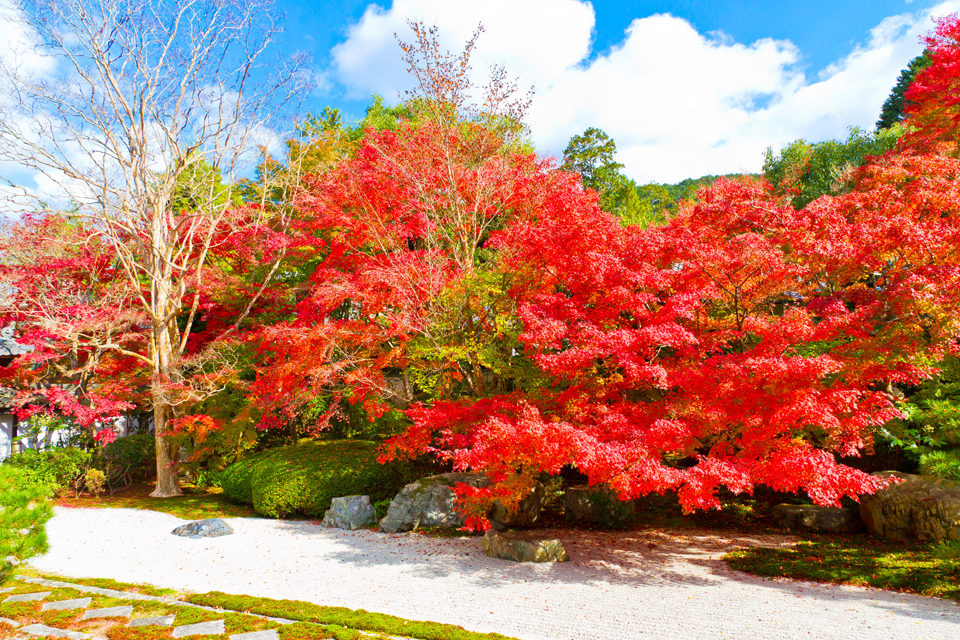
Nanzen-ji Temple
The closest station to Nanzen-ji Temple is Keage Station. Many different places in Nanzen-ji Temple are able to get sceneries of red leaves. But take views from the Tatchu sub-temple Tenju-an is a must.Click here for more information[hr][/hr]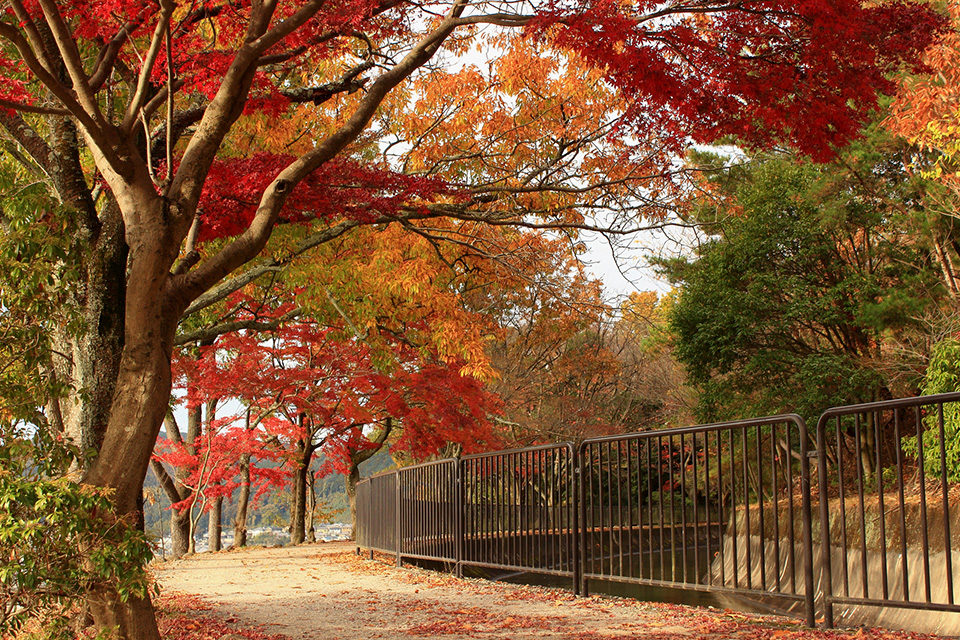
Lake Biwa Canal
Arrive at Yamashina Station. There is the Lake Biwa Canal. Walking along the canal from Shinomiya to Hinooka for 4km, the sakura in spring or the red leaves in autumn are so beautiful! And walk for 20minutes more, there is another tourist spot Bishamondo Temple.Transportation:
- Get off at Yamashina Station by JR Biwako or Tozai Line, 10mins walk
Red maple leaves period:Mid to Late November
[hr][/hr]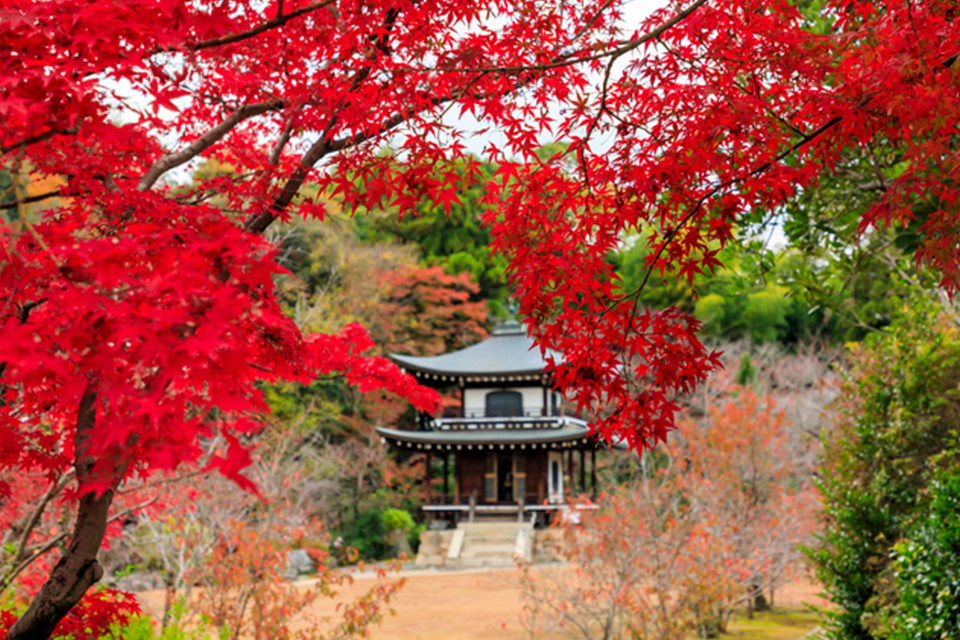
Kaju-ji Temple
The nearest station to Kaju-ji Temple is Ono Station. Kaju-ji Temple is for worship for Fujiwara no Ishi (died 896), the mother of Emperor Daigo. The school & Shinden were removed from old palace by Empress Meisho (1624-96). The promenade garden named Kajuji and Himuroike is the center of it. The reflection of red leaves around Kannon Do called as “Reversed Red leaves”. Do not miss the strange shape stone lamps named “Stone lantern of Kaju-ji Temple”. They were donated by Mito Komon and Mito Mitsukuni.Address:
27-6 Kanshuji Niodocho Yamashina-ku
- Get off at Ono Station by Subway Tozai Line, 6mins walk
- Free car park for 40cars
Red maple leaves period:Mid to Late November
[hr][/hr]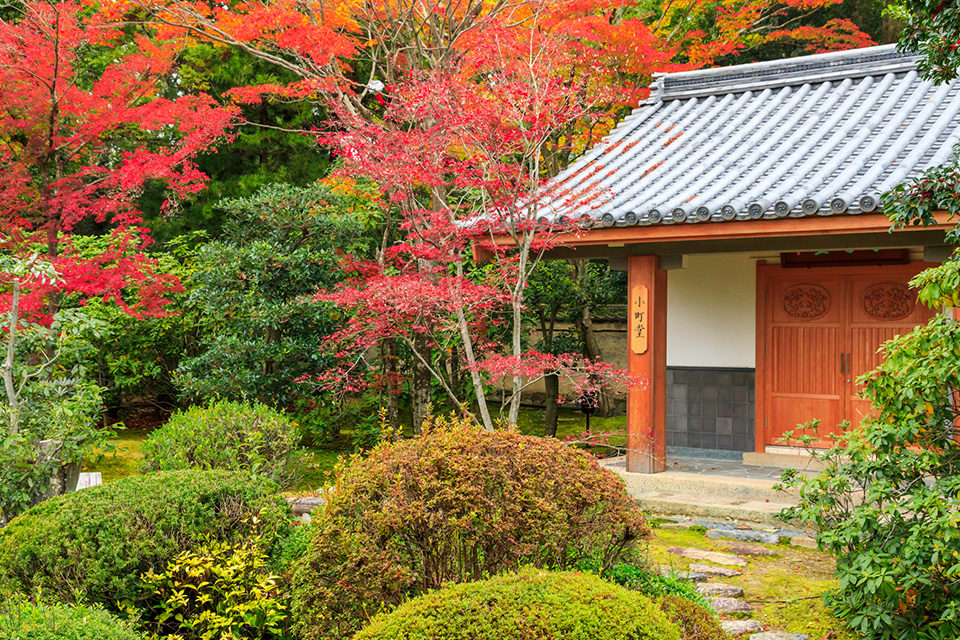
Zuishin-in Temple
Same distance as Kaju-ji Temple and the nearest station is Ono Station, but it is at the opposite direction. The famous Japanese waka poet Ono no Komachi in Heian period was undistinguished here for her last years. A garden with elegant air and let visitors enjoy red leaves without pressure.Address:
京都市山科区小野御霊町35
- 京都市営地下鉄 東西線「小野駅」より徒歩5分
- 駐車場:有り(無料)
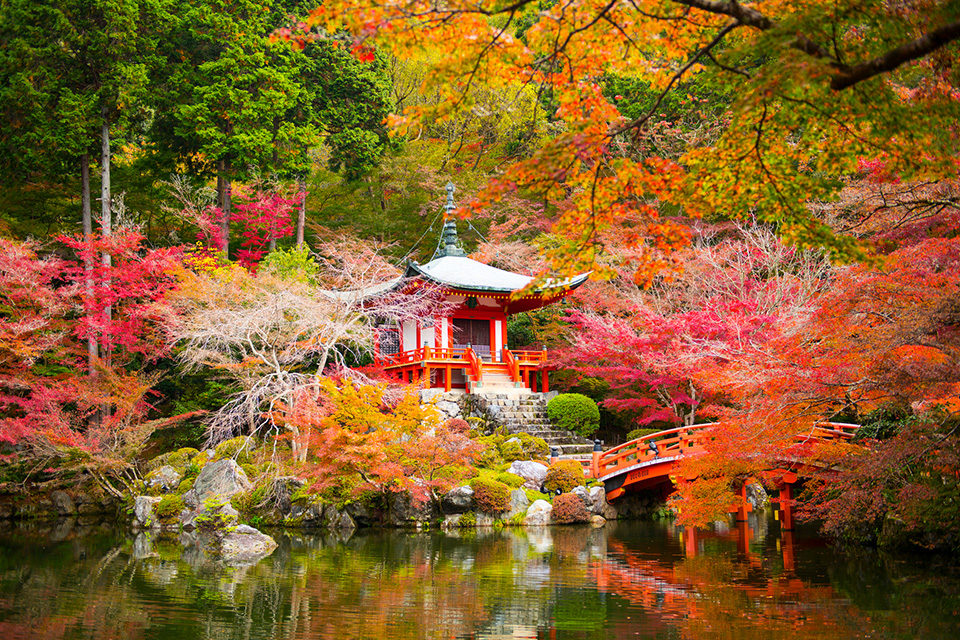
Daigo-ji Temple
Get off at Daigo-ji Temple station. There are a Sanbo-in Garden, Kannon Do and Bentendo (these areas are called as Rinsen) designed by Toyotomi Hideyoshi. All of them are good for enjoying maple leaves.Address:
京都府京都市伏見区醍醐東大路町22
- 地下鉄東西線醍醐駅から徒歩で10分
EpilogueEven have chance to visit Kyoto by subway, will someone take the whole trip for it. As it charge 210Yen for a single ticket, so suggest buying a “One Day Pass”of 600Yen, very economic. You may not are a red leaves lover, but sometimes it is fun to look for the red leaves when traveling in the subway.
![caedeKyoto[カエデ京都] 紅葉と伝統美を引き継ぐバッグ](https://caede-kyoto.com/wp/wp-content/uploads/2024/07/メインロゴ.png)
